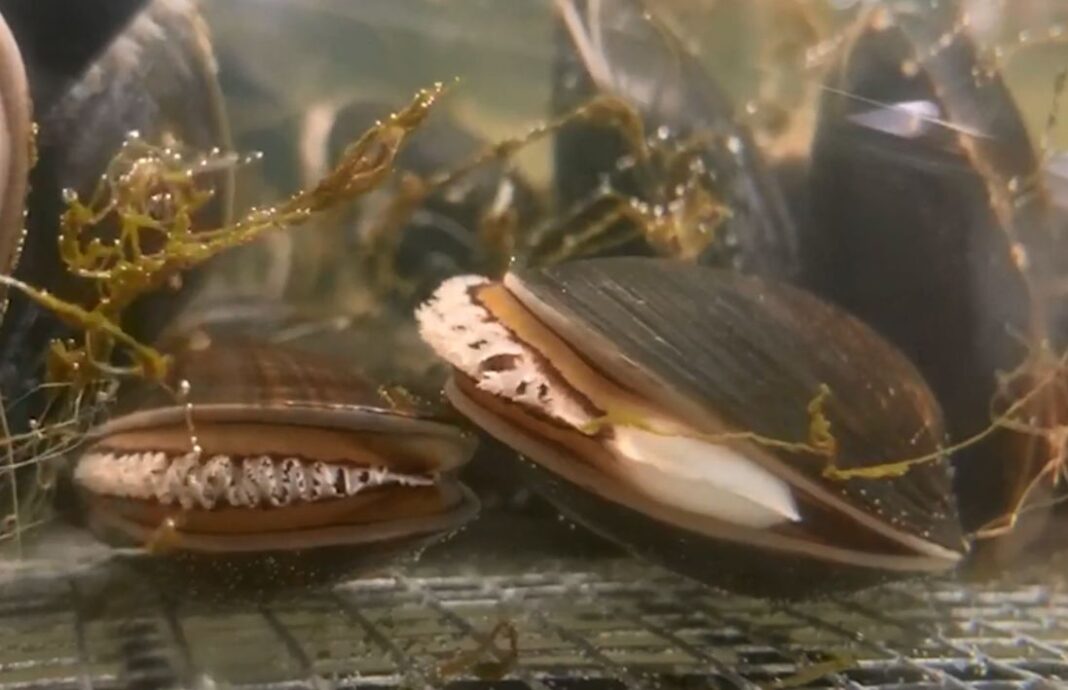The oceans are full of microplastics and the amount of this waste is constantly growing. Effective ways to fight microplastics are constantly being sought, and it seems that mussels could be the best helpers. Mussels can absorb microplastics and then eliminate them without damaging their body. Plastic particles are deposited in the bivalve’s droppings which the researchers say could be used for biofuel because it’s full of carbon.
The experiment brings promising results
A trial near the Plymouth Marine Laboratory in England is looking to see how many mussels it would also take to successfully cleaning the ocean from microplastics. A blog entry from a biologist at EPA suggests that one adult mussel can filter feed through 15 gallons of water a day, and that a 6-mile bed of mussels can remove 25 tons of particulate matter a year.
In one of the experiments performed, 300 mussels were placed in a flow tank where the mussels were supplied with phytoplankton and microplastics. The mussels managed to absorb 25% of the microplastics in the water, which is a great result. The research was funded by the Waitrose Plan Plastic grant project, which is funded by the sale of plastic bags in Waitrose stores in the UK.
The project could find use at estuaries
“The trials so far have been extremely promising and we’re very excited about the positive impact systems like these could potentially have on estuarine areas, particularly in places where microplastics might accumulate such as marinas, harbors or near wastewater treatment works,” said Professor Pennie Lindeque, Head of Science – Marine Ecology and Biodiversity, in a press release.
“This has been a really exciting experiment, because we always hoped that mussels would have the capacity to filter out microplastics, but they do it really well, and they do it without harming themselves,” Lindeque says.
Although suitable technologies for collecting microplastics from the oceans are being tested around the world, in the end it may be the living creatures that will help us the most in removing this hazardous waste.
Source:
https://www.goodnewsnetwork.org/mussels-filter-feed-out-250000-microplastic-particles-per-hour/

















